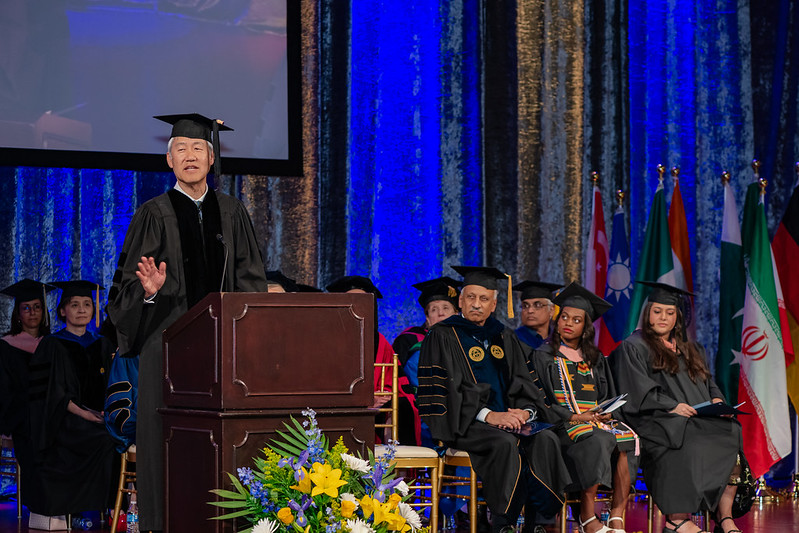Microsoft research president, Dr. Peter Lee assured University of Pittsburgh School of Public Health graduates on May 2 that their generation is uniquely positioned to steer the world toward healthier, more equitable futures—and he pledged that trailblazers in medicine and technology stand firmly behind them.
Addressing a packed Carnegie Music Hall, Lee celebrated the class’s resilience and ingenuity, then offered what he called “new superpowers”: artificial intelligence tools already tracking outbreaks and tailoring prevention strategies to communities’ genetic, environmental and social realities.

“Public health has never had sharper instruments,” Lee said. “You will know precisely where help is needed, and you’ll reach people faster than any class before you.”
Lee’s remarks, though grounded in technology, focused on human potential. He encouraged graduates to view AI as a partner that amplifies empathy rather than replacing it. Recalling his own “nine stages of AI grief”—from early skepticism to full acceptance after OpenAI’s GPT-4 excelled on the U.S. Medical Licensing Exam—he said the journey taught him one lesson: “Tools can amaze, but people change the world.”
He urged graduates to champion transparency, guard against bias and keep communities at the center of decision-making. “The science will move swiftly,” he said. “Your patience, your compassion and your leadership will make sure no one is left behind.”
Lee traced his winding path from Carnegie Mellon University professor to head of Microsoft’s global research labs, then to rebuilding the company’s health division at the behest of CEO Satya Nadella. Each unexpected turn, he noted, came with mentors who believed in him. “Now it’s our turn to believe in you,” he told the graduates, drawing applause.
Quoting Abraham Flexner’s 1939 essay “The Usefulness of Useless Knowledge,” Lee closed on a bright note: pursuits that once appear impractical often prove indispensable. “Hold tight to curiosity,” he said. “With the education you earned here and the AI tools now in your hands, you can cure disease, ease suffering and light the way for the rest of us.”
-Joe Barreto